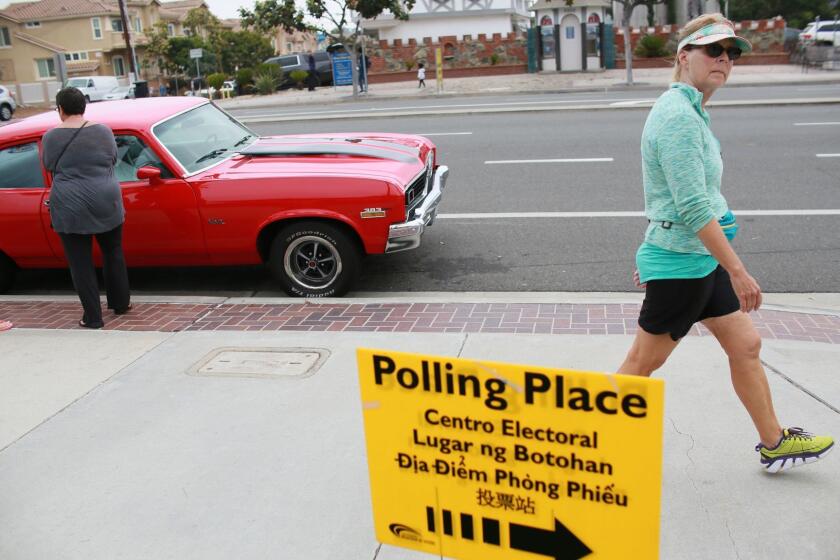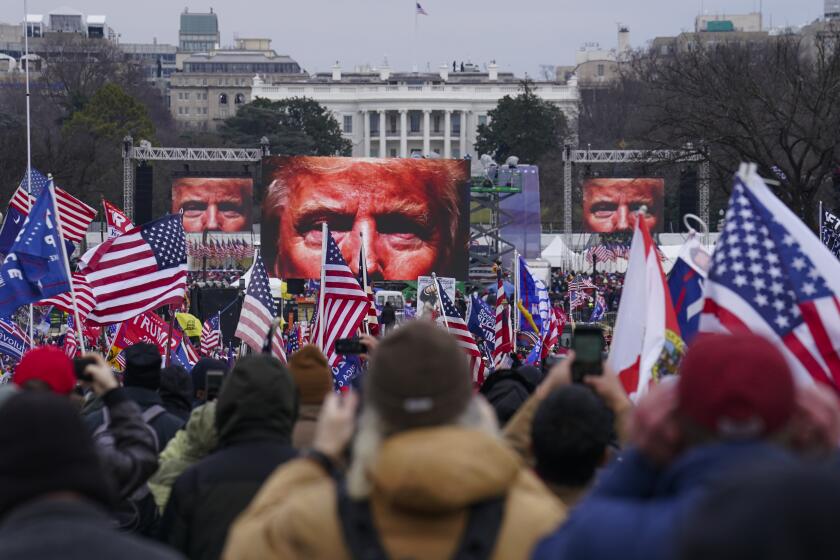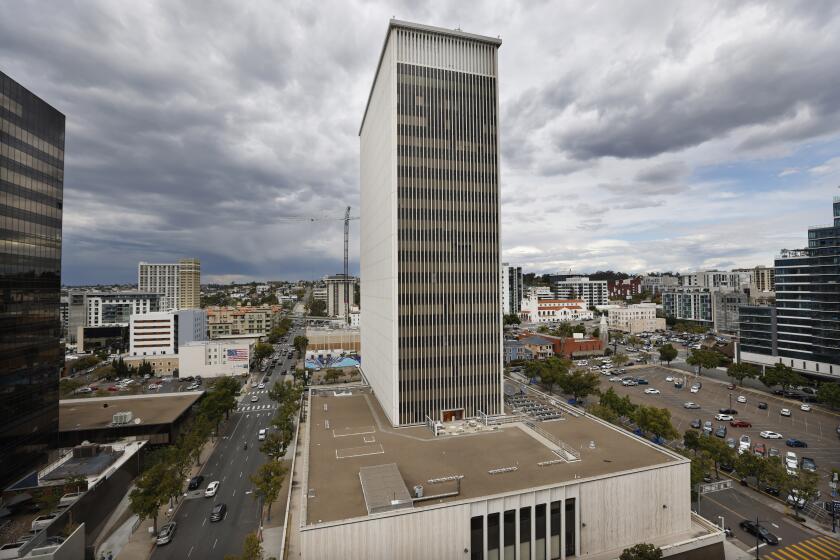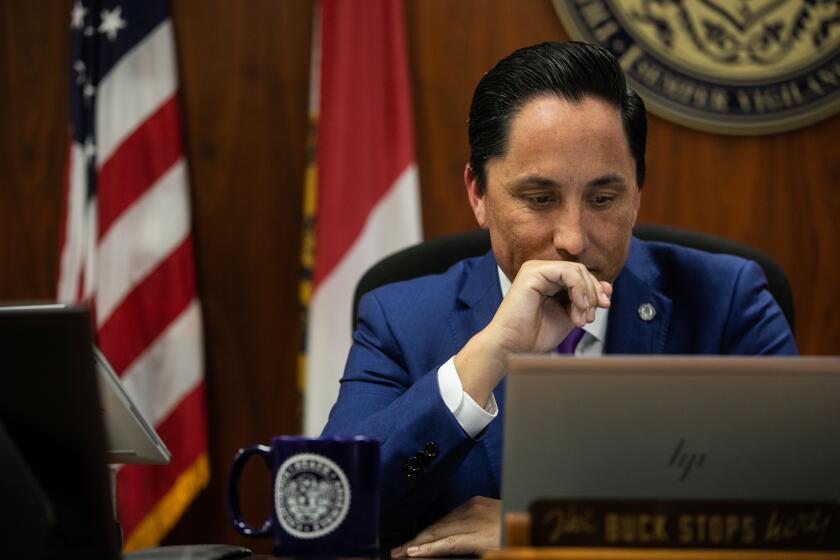Rep. Susan Davis, three other House Dems sued for displaying Pride flag

As San Diego concluded its annual gay pride celebration over the weekend, Rep. Susan Davis and three other House members were sued for displaying a rainbow flag outside of their Capitol Hill offices.
Rep. Susan Davis and three other House members have been sued for displaying a rainbow flag in the hallways outside of their Capitol Hill offices.
The plaintiff: Chris Sevier, an attorney who has an ongoing campaign against same-sex marriage and has also unsuccessfully sued states for the right to marry a laptop computer, to make a point about rulings on same-sex marriage.
Besides Davis of San Diego, Sevier also sued Reps. Alan Lowenthal of Long Beach, Don Beyer of Virginia and Earl Blumenauer of Oregon. All are Democrats.
Sevier’s 38-page complaint asks the federal District Court in the District of Columbia to determine that “‘homosexuality’ and other forms of self-asserted sex-based identity narratives are a ‘religion,’” and that the colorful banners are a religious symbol for the “homosexual denomination.” He is seeking to force the members of Congress to remove the flags.
He’s asking for $1 in damages. House Counsel will represent the defendants
Davis, who was served with the lawsuit this week, said the flag outside her office isn’t going anywhere and that the legal action only encourages her to double-down on her support for equal rights for members of the LGBTQ community.
Word of the lawsuit has brought defenders to her side, Davis said.
“The amazing response we’ve gotten has been overwhelmingly supportive,” she said.
She was served as San Diego’s gay pride parade and festival came to a close. While the annual event includes picnics, parties, and gatherings around the city, most of it is concentrated in Hillcrest and Balboa Park in Davis’ district.
“I think we’ve come so far, and anybody who experiences Pride in San Diego, which was just this weekend, realizes that in San Diego, that this is the happiest day of the year,” she said.
The flag outside of her office has been up since March 2015, and some other members who have heard of the lawsuit have asked where they too can get a flag to display outside of their own office, Davis said.
In addition to the rainbow flag hanging from a pole, Davis’ office also displays the U.S. and California flags.
Lowenthal said that his flag was desecrated earlier this year, but he received overwhelming support in response.
“It is a symbol of both how far we have come on equality for all Americans and how far we still have to go. It is a symbol of love, of peace, and diversity,” he wrote in a post on Facebook.
“I will fight this hateful attempt to silence equality and justice. We have come too far to allow the voices of bigotry and hate to win,” he continued.
Besides demanding that the flags be removed from the hallways, Sevier also asked the court to overturn Supreme Court rulings that ended a prohibition against sodomy and federal policies that only recognized opposite-sex marriages, as well as Obergefell V. Hodges, the 2015 ruling that found that same-sex couples have a fundamental right to marry.
Further, he said the members who displayed the flag should be removed from office.
“The Defendants know or should know that they are advancing a threat to Democracy...to the point that they are unfit to hold office and should be removed for cause for representing an internalized danger to National Security interests,” he said.
While Sevier wants the flags removed, he said, as an alternative members of Congress could display flags for polygamists, zoophiles, heterosexuals, and machinists. The latter is a person who prefer is attracted to inanimate objects, and, as Servier explains in his complaint, includes himself.
Those other groups, however, do not seem to have their own flag.
He has sued in several states for the right to marry an inanimate object.
“Yet, the county clerks continue to issue him and his preferred souse a marriage license for reasons that are arbitrary,” Sevier wrote in his complaint.
While the rainbow flag is nearly universally not considered a religious symbol, displays of faith have been permitted on government properties. The Supreme Court has repeatedly ruled that religious images, including the Ten Commandments, are allowable because they serve a secular purpose alongside the religious connotations they carry.
Twitter: @jptstewart
joshua.stewart@sduniontribune.com
(619) 293-1841
Get Essential San Diego, weekday mornings
Get top headlines from the Union-Tribune in your inbox weekday mornings, including top news, local, sports, business, entertainment and opinion.
You may occasionally receive promotional content from the San Diego Union-Tribune.








